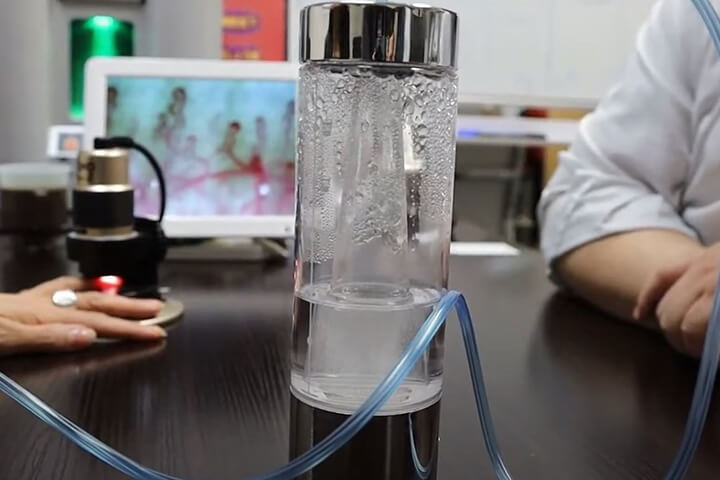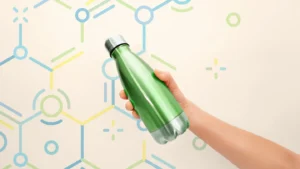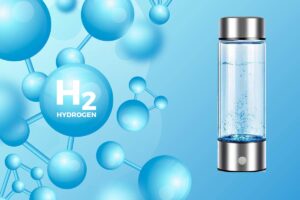When it comes to hydrogen‑rich water, you’ll find three main delivery methods: tablets, portable bottles, and countertop machines. Each has its advantages and limitations, which can make choosing the right option a bit confusing. In this article, we’ll compare hydrogen water tablets and machines—exploring how they work, how effective they are, and which one might be the best fit for your lifestyle.
Understanding the Two Methods
Hydrogen Water Tablets
These are effervescent tablets that you drop into a glass or bottle of water. The tablet reacts (often via magnesium or other reactive material) and releases molecular hydrogen (H₂) into the liquid. The idea is simple: dissolve the tablet, wait a minute or so, then drink.
Pros of tablets:
- Very portable and convenient—just carry tablets + a sealed bottle.
- No machine or power needed, so easier for travel or odd locations.
- Often relatively inexpensive to begin with.
Cons of tablets:
- Depend on the quality of the tablet material and the water used (temperature, minerals).
- The amount of hydrogen produced can vary—and often depends on how long you wait and how tight the container is.
- Recurring cost: you keep buying more tablets if you use them daily.
- Some tablets introduce additional compounds into the water (e.g., magnesium salts) that may affect taste or digestion.
Hydrogen Water Machines
These are devices (under‑sink, countertop, or standalone) that generate hydrogen‑rich water via electrolysis or other mechanisms. They might attach to your water supply, or have a refillable tank, and they often produce higher water volume and a more consistent result.
Pros of machines:
- Higher capacity and often more consistent hydrogen concentration per glass.
- Fewer consumables in the long run (once installed, you pay mostly for maintenance).
- Better suited for regular use at home, for multiple glasses per day or for families.
Cons of machines:
- Higher upfront cost and larger space requirements.
- Require installation, electricity, filters, and periodic maintenance.
- Less portable than tablets—poor choice for travel or frequent mobility.
How They Compare: Tablets vs Machines
Let’s look at a side‑by‑side comparison of key factors.
| Factor | Tablets | Machines |
|---|---|---|
| Up‑front cost | Low to moderate | High |
| Recurring cost | High (buy more tablets) | Lower (maintenance mostly) |
| Hydrogen concentration per dose | Can be quite high in some tablets, but variable | Generally more stable and consistent |
| Portability | Excellent (just tablets + water) | Poor to moderate (stationary device) |
| Ease of daily use | Very simple (drop & drink) | Requires set‑up, cleaning, maintenance |
| Volume of water per cycle | Usually small (1 glass) | Can serve multiple glasses or whole household |
| Best for | Travel, occasional use | Daily heavy use, families, home base |
Effectiveness: Do Tablets Work Better Than Machines?
The simple answer: “better” depends entirely on your goal, usage pattern, and budget. Here’s a breakdown.
When Tablets Could Be Advantageous
- If you travel often, stay in hotels or move between locations: tablets win for portability.
- If you only plan to drink hydrogen water occasionally (one or two glasses when needed), tablets make sense.
- If your goal is to test the waters (no pun intended) without major investment, tablets are less risky.
When Machines May Be Superior
- If you drink multiple glasses per day, want consistent results, or the whole household uses hydrogen water: machines provide better value.
- If you’re chasing higher reliability, stable hydrogen levels, and minimal fuss after initial setup: machines win.
- If you intend long‑term daily use, machines tend to cost less per “serving” over time.
Key Considerations
- Hydrogen concentration: Some tablets claim very high ppm (parts per million) hydrogen levels, which looks good on paper. But practical factors—seal of container, water quality, timing of consumption—can reduce actual effectiveness. Machines tend to deliver more consistent and reproducible results (though at higher cost).
- Convenience vs maintenance: Tablets win convenience; machines win performance, but at the cost of more involvement.
- Long‑term cost: A machine’s higher upfront cost may be worth it if daily use is the plan. Tablets might look cheap initially but add up fast if used every day.
- Lifestyle fit: Travel, gym, quick use → tablets. Home‑based, family use, multiple glasses/day → machines.
Where Portable Devices Fit In (and Where Bottles Sit)
Before deciding between tablets and full machines, it’s worth mentioning the in‑between option: portable hydrogen water bottles that generate hydrogen via electrolysis (some using PEM/SPE membranes). These devices allow generation on the go but still depend on rechargeable batteries and electrolysis.
A large body of “Reviews of Hydrogen Water Bottles with PEM Technology” highlight that while these bottles are handy for portability, their hydrogen levels and consistency often fall between tablets and machines. So if your criteria include “portable and reliable,” these bottles may be a compromise—but they too have trade‑offs.
My Verdict: Which Should You Choose?
- If you are an occasional user: Try tablets first. They’re cheap, easy, and good for travel or occasional hydration boost.
- If you intend daily use: Invest in a machine if budget and space allow—it will likely deliver better consistency, higher volume, and lower per‑glass cost.
- If portability + decent performance matter: Consider a high‑quality bottle with PEM technology, knowing it might not match the highest concentrations of tablets or full machines but offers balance.
FAQs
Q1. Are tablets safe to use?
Yes, generally they are safe when used as directed. However, check ingredients and ensure that any dissolved compounds are acceptable for your health.
Q2. Will a machine absolutely outperform tablets?
Not always “better” in every metric—but for daily, heavy use, machines typically perform more consistently. Tablets may deliver high ppm in one dose but vary widely.
Q3. Does the choice affect health benefits?
Potentially. If hydrogen concentration and frequency of intake matter for benefit, then consistency (machines) may edge out high‑dose but sporadic tablets. But if you only drink hydrogen water rarely, the tablet may suffice.
Q4. Are there hidden costs?
Tablets mean ongoing purchase costs. Machines mean upfront cost + maintenance. Choose based on your usage pattern.
Q5. Can I switch between methods?
Absolutely. Some people use a machine at home and carry tablets when traveling for flexibility.
Conclusion
So do hydrogen water tablets work better than machines? It depends—but generally:
- For portability and occasional use, tablets are excellent.
- For daily heavy use, reliable concentration, and long‑term cost‑effectiveness, machines are likely the better investment.
- If you’re somewhere in between (travel often but still drink often), a quality bottle sits in the middle ground.
Your choice should align with how often you’ll drink hydrogen water, where you’ll drink it (home vs travel), and how much you’ll drink. By choosing based on usage rather than hype, you’ll get the best value and results for your routine.



